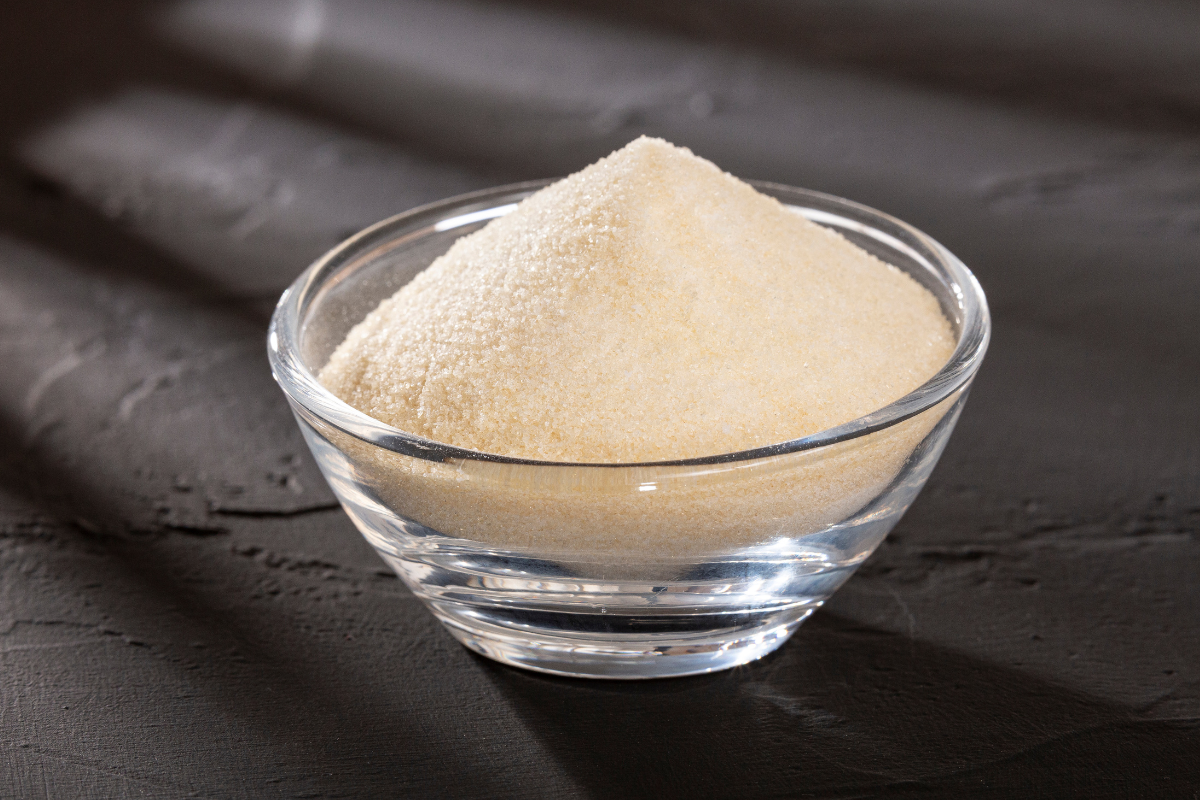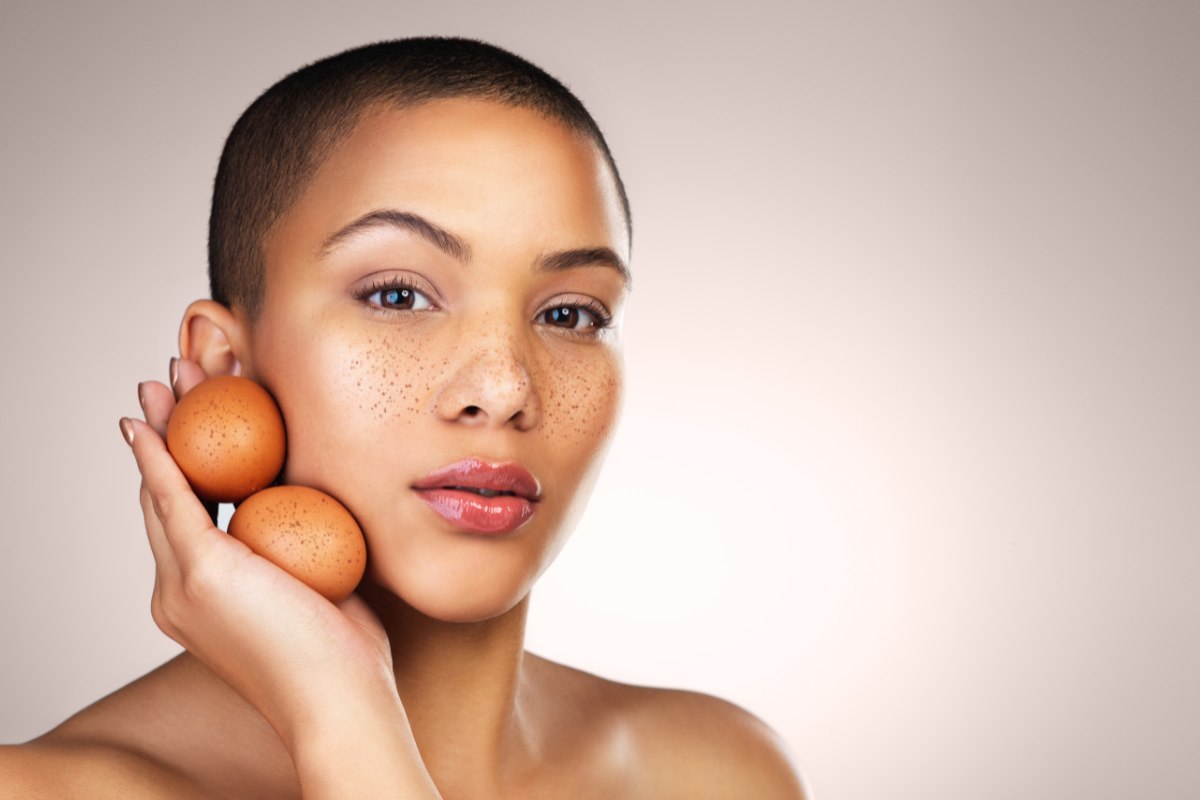Collagen & food for the skin

Collagen & food for the skin
The skin is the largest organ in your body and acts as the body's barrier and protection. Glowing skin is a natural sign of good health.
Pollution and environmental factors such as UV rays from the sun, the stress of everyday life, along with an unhealthy diet with lots of junk food, smoking and too much alcohol - are all factors that eat away at that healthy "GLOW"!
Most of us complain about both acne, spots and pimples. Makeup only hides them, but a healthy diet keeps them away! If we make some changes in our diet, it is possible to get a radiant skin naturally.
The food tips below will not only keep your body healthy, but also help you achieve glowing skin that radiates – the perfect dream skin!
Collagen for beautiful skin
The skin consists of approximately 70% collagen. Collagen supplements improve the skin's moisture, elasticity and hydration when taken in powder form via a dietary supplement. In addition, collagen reduces wrinkles and roughness in the skin.
Oily fish for radiant skin
Fatty fish, such as salmon, mackerel and herring, are excellent foods for glowing and healthy skin. They are rich sources of omega-3 fatty acids, which are important for maintaining skin health.
Omega-3 fatty acids are necessary to keep supple and hydrated. In fact, a lack of omega-3 fatty acids can cause dry skin.
The omega-3 fatty acids in fish reduce inflammation, which can cause redness and acne. They can even make your skin less sensitive to the sun's harmful UV rays.
Some studies show that a fish oil supplement can fight inflammatory and autoimmune conditions that affect your skin, such as eczema and psoriasis.
Oily fish is also a good source of vitamin E, one of the most important antioxidants for your skin. Getting enough vitamin E is important to protect your skin from free radical damage and inflammation.
Finally, fish contains zinc, a mineral that is critical to regulating inflammation, new skin cell production, and overall skin health. Zinc deficiency can lead to inflammation of the skin, damage and delayed wound healing.
Avocado for skin health
Avocados contain a high percentage of healthy fats. These fats benefit many functions in your body, including your skin health.
Getting enough of these fats is important to keep skin elastic and hydrated.
A study of over 700 women found that a high intake of total fat—especially the types of healthy fats found in avocados—was associated with more supple and elastic skin.
Avocado also contains nutrients that can protect your skin against sun damage. UV damage to your skin can cause wrinkles and other signs of aging.
Avocados are also a good source of vitamin E, which is an important antioxidant that protects your skin from oxidative damage.
Interestingly, Vitamin E appears to be more effective when combined with Vitamin C.
Vitamin C is also important for healthy skin. Your skin needs it to create collagen, which is the main structural protein that keeps your skin strong and healthy.
Vitamin C deficiency is rare today, but common symptoms are dry, rough and scaly skin that tends to bruise easily.
Vitamin C is also an antioxidant that protects your skin from oxidative damage – caused by the sun and the environment – which can lead to signs of ageing.
Walnuts for healthy and beautiful skin
Walnuts have many properties that make them an excellent source that contributes to beautiful and healthy skin.
Walnuts are a good source of essential fatty acids (essential for life), which are fats that your body cannot make itself.
In fact, they contain more omega-3 and omega-6 fatty acids than other nuts.
In addition, walnuts also contain other nutrients that contribute to the health and beauty of your skin.
Sunflower seeds for beautiful skin
In general, nuts and seeds are good sources of nutrients and good fats that are important for the skin. Sunflower seeds are a prime example. Sunflower seeds are packed with vitamin E, selenium and zinc, all of which are nutrients that contribute to beautiful skin.
Sweet potato for natural sun protection in the skin
Beta-carotene is a nutrient found in plants. It acts as provitamin A, which means it can be converted into vitamin A in your body, when needed.
Beta-carotene is found in oranges and vegetables such as carrots, spinach and sweet potatoes.
Carotenoids like beta-carotene keep your skin healthy by acting as a natural sunscreen.
When carotenoids are consumed, this antioxidant ends up in the skin and protects your skin cells against sun exposure. This can help prevent sun damage, cell death, dry and wrinkled skin.
Interestingly, high amounts of beta-carotene can also help make the skin orange/look more tanned, contributing to an overall healthier appearance.
Red and green peppers important for collagen production
Like sweet potatoes, bell peppers are an excellent source of beta-carotene, which your body converts into vitamin A when needed.
Bell peppers are also one of the best sources of vitamin C, which is necessary to create the protein collagen that keeps your skin elastic and young.
A large observational study in women saw a link between a high intake of vitamin C and reduced risk of wrinkled and dry skin.
Broccoli counteracts dry skin
Broccoli is packed with many vitamins and minerals important for skin health, including zinc, vitamin A and vitamin C.
Broccoli also contains lutein, a carotenoid that acts like beta-carotene. Lutein protects your skin from oxidative damage, which can cause skin to become dry and wrinkled.
- Tags: Hud/Skin Kollagen/Collagen







